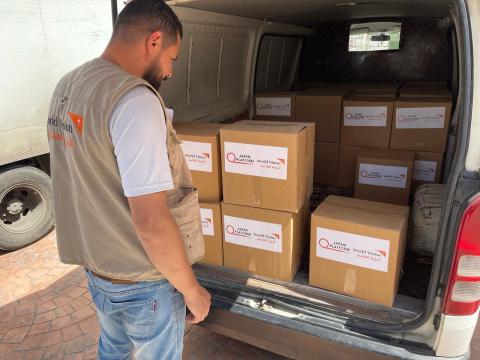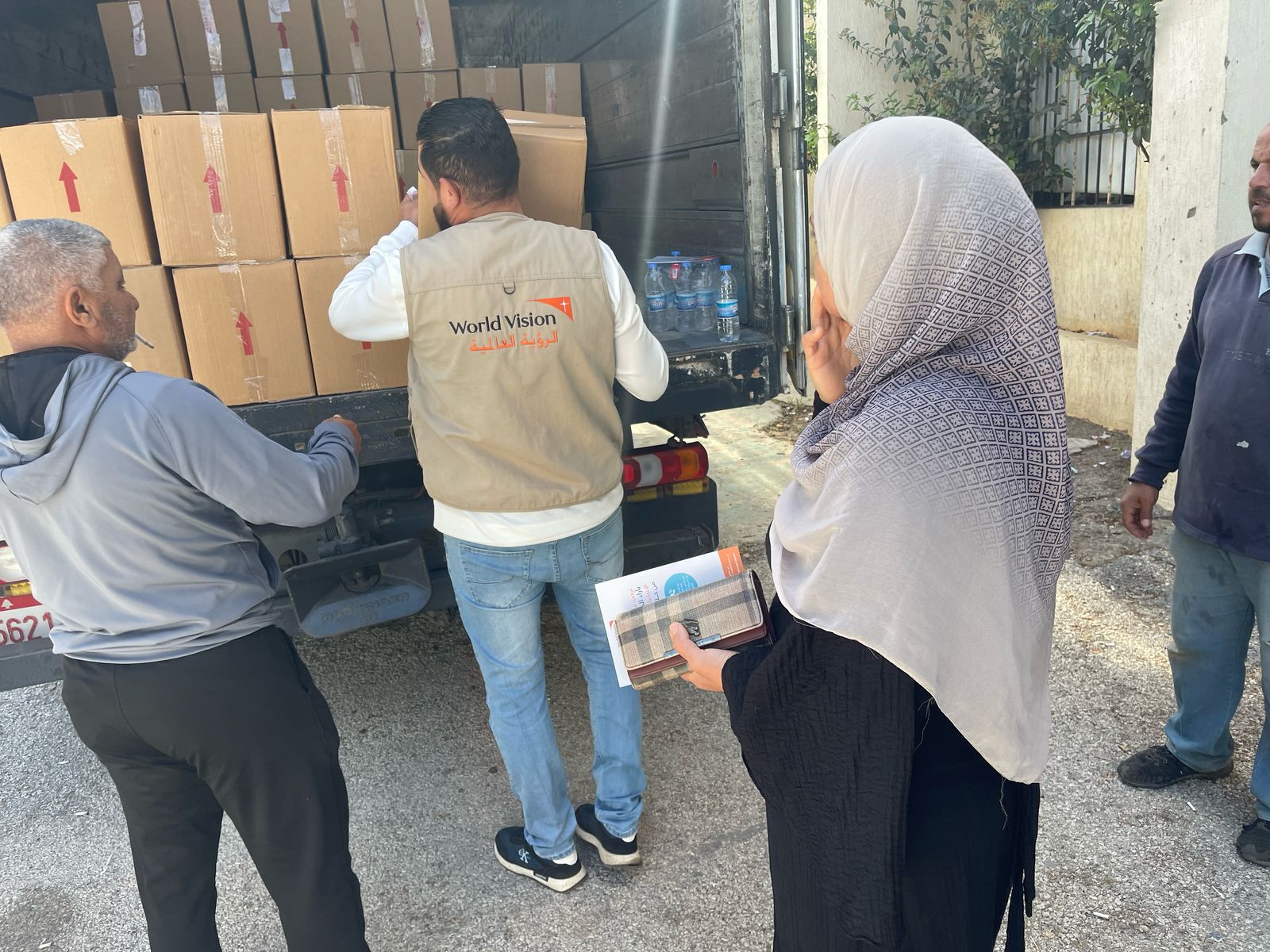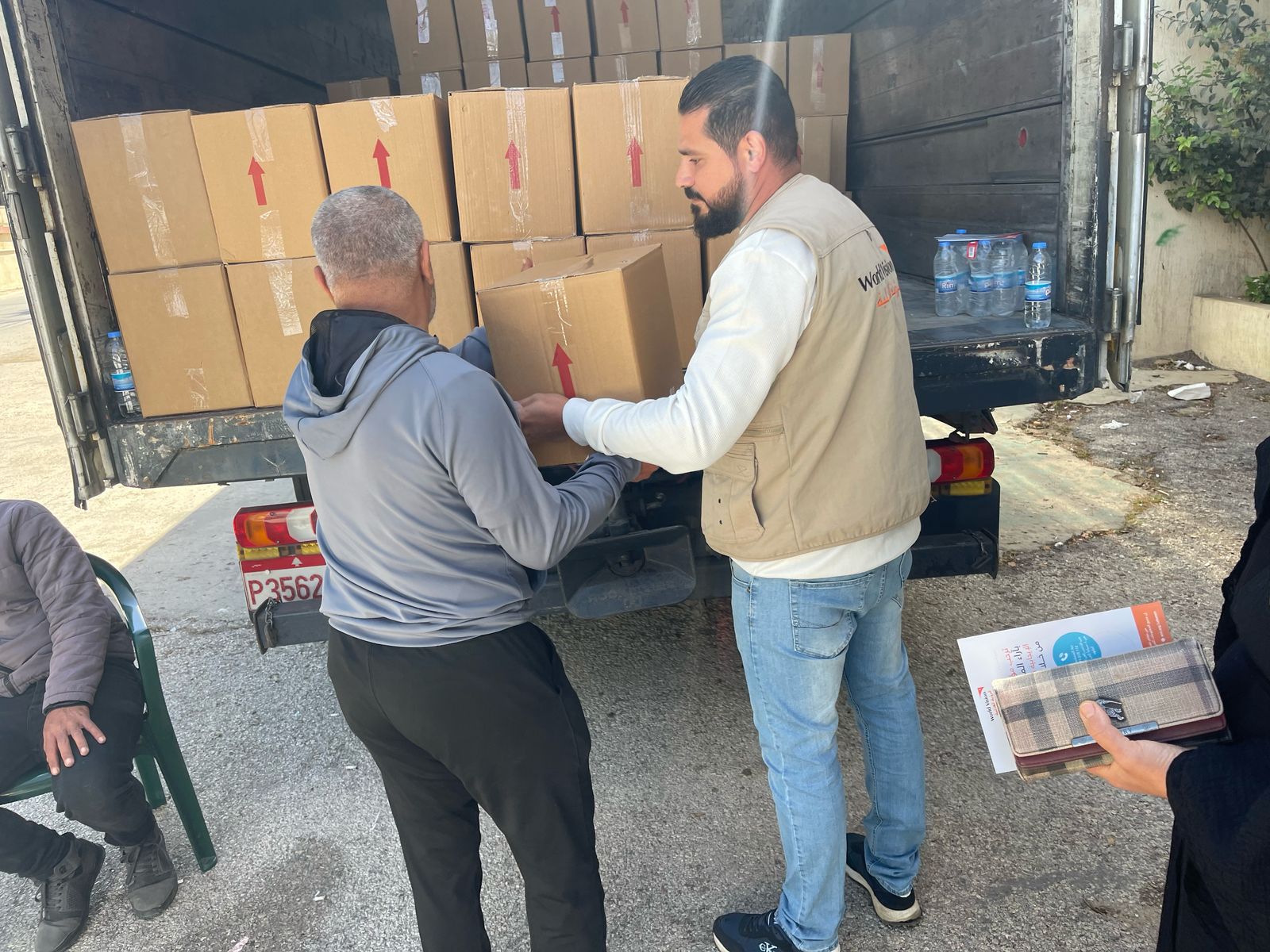Restoring hope for Lebanon's displaced families

Since 2019, Lebanon has been facing several crises due to economic and social issues, including many hardships as rising costs of food, fuel, and medicine, alongside a collapsed healthcare system became more severe by COVID-19 pandemic. The situation worsened with the Beirut explosion in August 2020, which killed over 200 people and caused major damage. By 2021, over 74% of Lebanon’s population was living in poverty, and this number has now risen to over 82%, with more than 700,000 children unable to attend school due to the lack of basic services. [1] [2]
In late 2023, life in South Lebanon became even more heartbreaking due to an escalation of violence, which forced many families to flee their homes in fear, seeking safety elsewhere. Some escaped with nothing, desperately searching for safety, shelter, food, and clean water. What started near the border soon reached the southern suburbs of Beirut, the Bekaa Valley, and Baalbek. Bombing hit homes, schools, markets, and hospitals, turning normal daily life into scenes of destruction. Although a cessation of hostilities was reached in November 2024, many people had already lost their homes, loved ones, and safety, making it harder to rebuild their lives.
By late 2024, around 1.2 million individuals were internally displaced, including over 400,000 children who sought refuge in temporary shelters. The ongoing conflict has severely disrupted education for 1.5 million children according to Save The Children, with many schools either attacked or repurposed as shelters, underscoring the critical need for sustained humanitarian assistance..[4] [5] [6]
In response, World Vision Lebanon and World Vision Japan, supported by Japan Platform (JPF), organised food parcel distributions to families in South Lebanon and the Bekaa area. These parcels, designed to sustain a family of five for 15 days, provide essential items to support displaced families. This life-saving intervention is crucial, especially since internally displaced persons (IDPs) have lost their livelihoods and sources of income due to displacement.
Fatima: a mother’s strength in silence

Fatima, a mother of three. Her voice was quiet but full of worry and fear, as she shared how difficult life has been since the conflict. She said, "The situation is very bad, we were afraid of losing access to basic needs. My kids had to stop going to school, and the situation affected them a lot, especially their mental health."
She was thankful for the aid, noting, "Although the situation is still bad for us and not good at all, aid is the best thing that happened to us after the conflict." Fatima hopes the aid continues, as they can't afford this essential food assistance on their own, and she ended by expressing gratitude for this project: “May God bless you for all the support you’ve provided, and everyone who participated."
A father’s journey through the conflict
Tarek, a father of four with tired eyes and a heavy heart, spoke with sadness about what his family had been through. “I can’t describe the situation because of how miserable it is. There’s no work, no money, we have nothing.” When the violence started, he made the painful decision to send his family to a safe place while he stayed behind “First, we moved to Saida, but the situation there wasn’t any better because of the airstrikes. In the end, we moved all the way to Aakar, where I paid all the money that I had with me to rent a place for my family."
His children, like so many others, had to stop school, and daily life became a struggle. The food parcels gave him some relief: “They help us a lot. They save us from buying oil, lentils, sugar… At least, they help me save about US$50 a month.”
Tarek expressed deep gratitude and hope for the support, as shown in his words: “I hope they keep helping us like this because we’re truly in need. Without this aid, we would have died of hunger,” he said softly. He also asked for more aids, supplies and food items like chicken or ham to be included, emphasising their ongoing need.

World Vision Lebanon and World Vision Japan, with the support of Japan Platform, were able to reach around 14,085 individuals who benefited from the food parcels and brought hope to families like Tarek's and Fatima's during challenging times between March and April 2025.
However, their challenges continue, highlighting the importance of humanitarian aid and the difference it makes in helping families recover and rebuild.